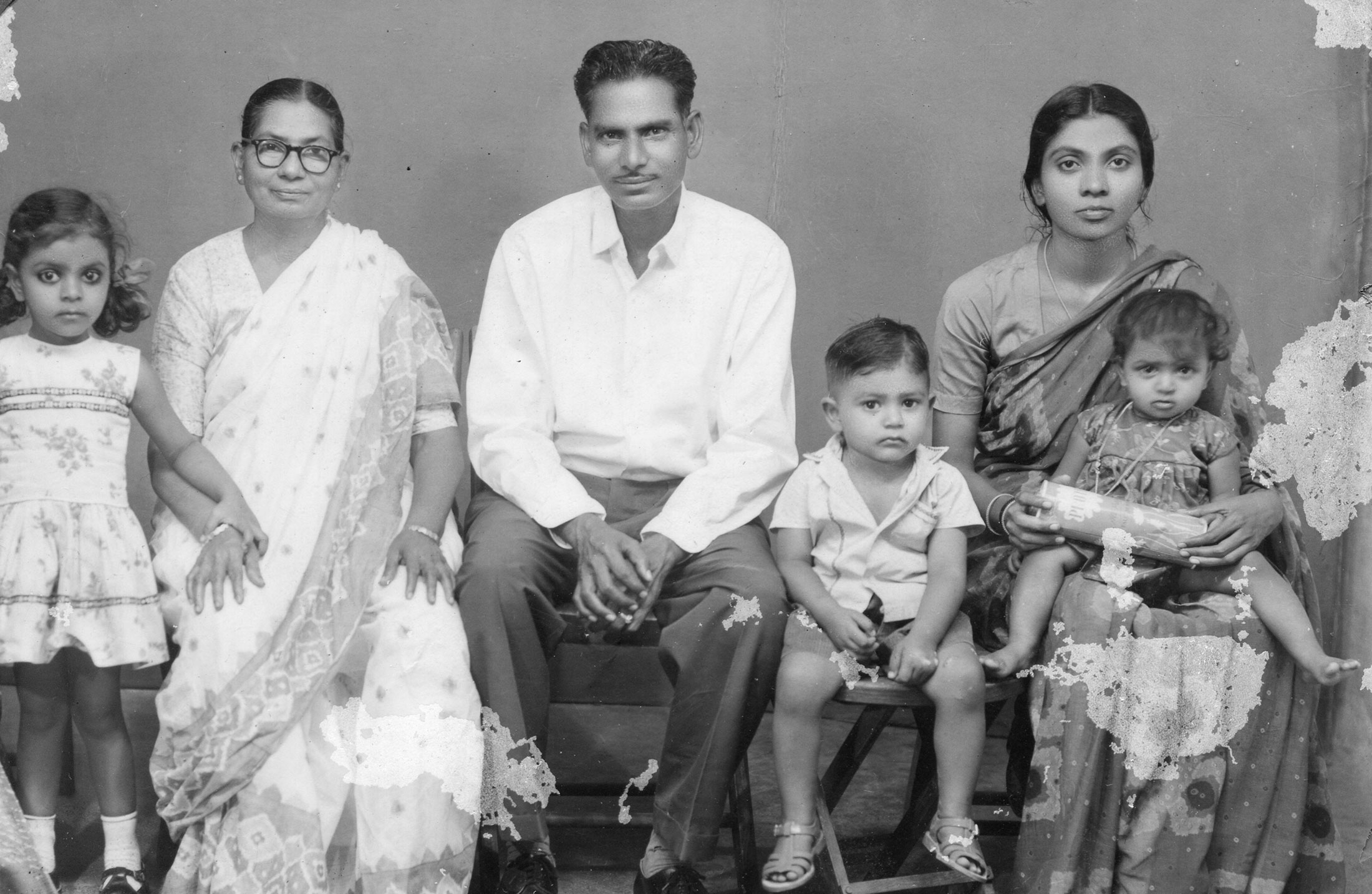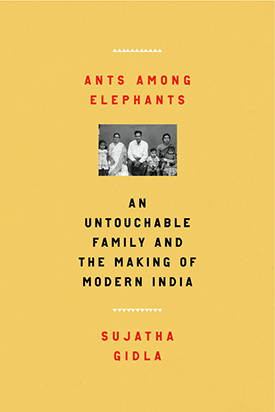I grew up in the untouchable slum of Elwin Peta in Kakinada. All around me was abject poverty. When you are surrounded by so much misery, you don’t see it as anything extraordinary. I remember when one of my friends in the neighborhood told me she’d had roast venison for dinner three days in a row. I laughed along with her, knowing that was her ironic way of saying she’d gone without eating. I was thinking of the joke she was making and not that some people don’t have anything to eat.
Yet two things I witnessed when I was seven or eight years old especially horrified me. Whenever I think of Elwin Peta, these moments come back to me. They will haunt me until I die.
A woman named Santoshamma with her two gaunt teenage sons lived across the street from our house under a thatch supported by four posts. She was only in her late thirties or early forties, but her body was so ravaged by starvation that she couldn’t walk anymore. She lay on rags under the thatch, moaning day and night, hungry and in pain. One day she just wanted something to eat. She sat up. But she couldn’t stand up. She put her hands on the ground behind her. Propping herself up on the heels of her palms, she lifted her ass up and propelled herself forward. Then she lowered herself to the ground again and stretched out her legs. Repeating these steps, she crawled all the way across the street and through our front gate.
I was skipping rope in front of our house. When I saw her come through the gate, I stopped and stared wide-eyed at the sight of her in her rags, her wrinkled skin hanging from her skeletal frame, her hair wild and dry like straw, with tears pooling in the folds around her eyes, desperate, crawling like some crushed and oozing creature.
She continued around the side of the house toward the kitchen in back to beg for some food from my grandmother. My grandmother, catching sight of her, was shocked and started weeping with helpless compassion and yelling at her in a trembling voice, abusing the poor woman for presenting us with such a bizarre and pitiful spectacle.
My mother would hire another woman, named Ruthamma, to do chores in our house. She was washing dishes in a bucket on the kitchen floor when I walked in, eating a piece of apple. It was the day after Christmas. We could afford apples only at Christmas. A couple of apples for the whole family. Ruthamma looked at the piece of apple in my hand with such a stupid, lustful grin, salivating openly, that I could not eat it anymore. I knew that she had never in her life tasted an apple. I can’t remember if I gave it to her.
Experiences like this made me wish there were no poor people in the world. But how could that be achieved?
Growing up, I heard about my uncle through my mother. She told us he had sacrificed everything, left his family, and gone off to help the poor. How did he help them? He had a gun. He would threaten rich people, take their money, and give it to those who had nothing. My uncle was like a cinema hero to me. I wanted so much to be like him. But we were never going to see him, my mother said, because the police were secretly watching our house. If he tried to visit us, he would be arrested and put in jail. All this made my uncle seem like a mysterious star shining in the sky high above.
My mother also told us that he never kept any of the money that he took for himself. He lived a hard life in the jungles. I practiced sleeping on the bare cement floor to prepare myself for the future when I’d have to sleep on the hard ground. I told my friends that I was going to be a Naxalite when I grew up.
One summer afternoon when I was fourteen years old, I was riding my bicycle home from my maths tutor’s house when I spotted a group of teenagers singing to a small crowd gathered on a street corner. Fascinated, I got off my bicycle. They were singing about poor peasants and workers, how unjust it is that they suffer from want because they are the ones producing the wealth, not the owners of the land and the factories. Never had I heard a song like this before. “Come on, peasant brothers,” they sang, “come on, all you exploited and impoverished, join the party of the peasants and the poor and let us all stand up to the landlords.”
Never had I heard a song like this before. “Come on, peasant brothers,” they sang, “come on, all you exploited and impoverished, join the party of the peasants and the poor and let us all stand up to the landlords.”
I walked through the crowd right into the midst of the singers and declared, “I want to join.”
They were delighted to have won a recruit. I invited them home with me. My family was surprised but also curious. Sitting on our bed, they sang for us, filling the small, asbestos-ceilinged room with revolutionary passion. We were enthralled. When my mother started talking to them and asking them questions, we learned they belonged to a party founded by none other than my uncle.
That day I became a Radical—a member of the Radical Students Union (RSU), the student wing of the People’s War Group (PWG).
Sujatha Gidla was born an untouchable in Andhra Pradesh, India. She studied physics at the Regional Engineering College, Warangal. Her writing has appeared in The Oxford India Anthology of Telugu Dalit Writing. She lives in New York and works as a conductor on the subway.

